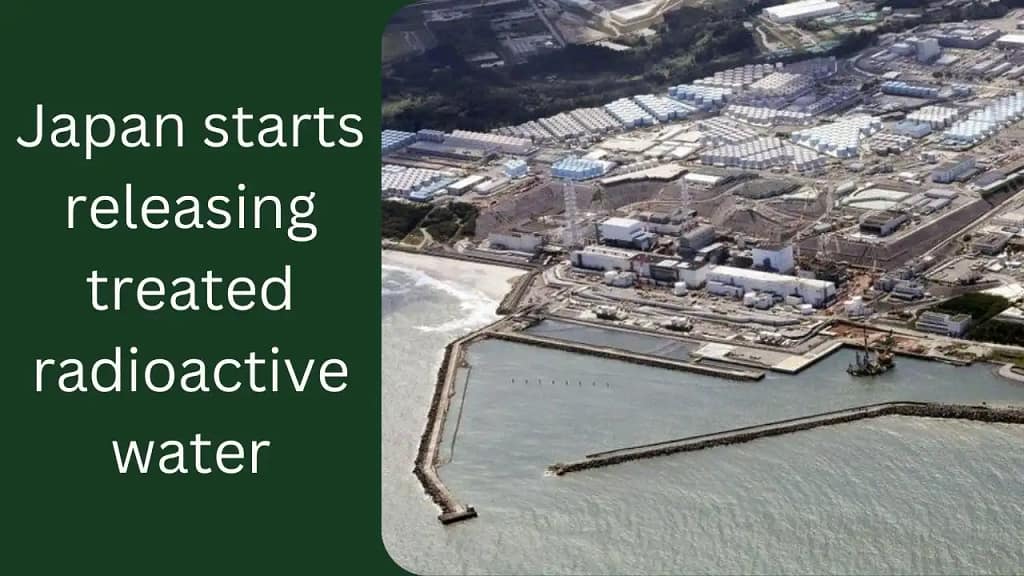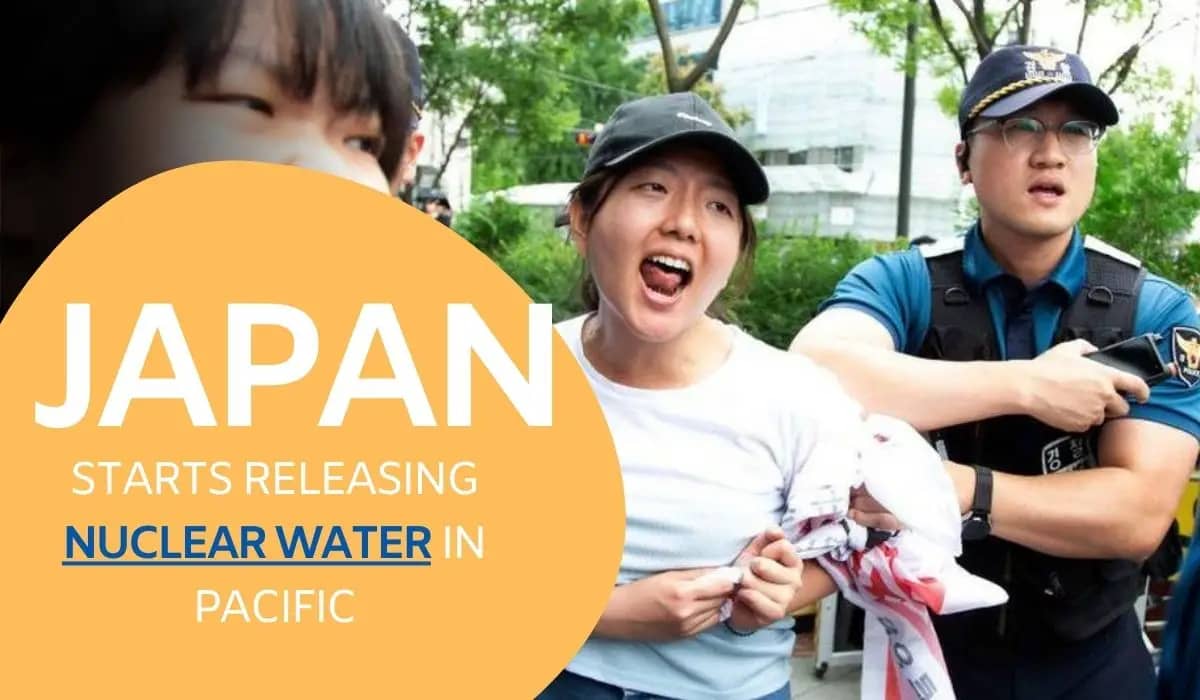Japan has initiated the process of transferring treated radioactive water from the decommissioned Fukushima-Daiichi nuclear power plant into the Pacific Ocean. This marks the culmination of a prolonged series of events that set apprehensive local fishermen and neighboring nations against officials from Tokyo. This conflict was juxtaposed with scientific evidence that indicated the release of the treated water would entail lesser risks compared to storing it.

“China’s foreign ministry issued a statement emphasizing that Japan must avoid inflicting further harm upon local residents and global populations due to self-serving motives. The ministry further stated that the choice is likely to attract sustained criticism from the global community.”
The decision, fraught with controversy and met with opposition within Japan, South Korea, and other nations, triggered a scathing rebuke from Chinese authorities on Thursday. In a vehement statement, Beijing expressed its opposition to and strong condemnation of Japan’s move. The Chinese government asserted that Japan’s actions were both “selfish and irresponsible,” arguing that the ocean is a shared global resource.
On Thursday, North Korea also registered its protest against the action, as reported by Agence France-Presse. The North Korean foreign ministry conveyed in a statement, which was disseminated through the official Korean Central News Agency, that Japan should promptly halt the hazardous release of nuclear-contaminated water, a move that poses a significant threat to the well-being and future of humanity.
In reaction to this discharge, Chinese customs authorities have implemented a ban on Japanese seafood imports, according to an announcement made on Thursday. This prohibition has been enforced immediately and encompasses all imports of “aquatic products,” encompassing seafood items. The authorities stated their intention to continually adapt relevant regulations as necessary to safeguard the health and food safety of their nation from the potential risks posed by the discharge of nuclear-contaminated water.
Japanese Prime Minister Fumio Kishida later responded on Thursday, stating that his government has formally demanded China to lift the ban. He disclosed to AFP that they had raised their concerns with China through diplomatic channels.
How did it start?
In March 2011, a tsunami inundated the backup cooling system generators for the reactors at the Fukushima atomic power station situated on Japan’s northeastern coast, leading to the most severe nuclear meltdown since the Chernobyl incident in 1986. Consequently, the Tokyo Electric Power Company (TEPCO) maintained a continuous circulation of cold water through the incapacitated reactors to prevent the radioactive fuel from overheating.
This practice is a customary procedure observed by the majority of the approximately 400 commercial nuclear reactors across 32 nations utilizing atomic energy. After passing through the reactors, utilities such as TEPCO remove the most hazardous radioactive components generated during the uranium atom-splitting process. However, a notable radioisotope, tritium, remains present. Tritium is a radioactive variant of hydrogen and is exceptionally challenging to extract from water.
Due to its weak radioactivity, tritium cannot permeate human skin effectively, rendering it one of the least harmful radionuclides. Presently, there is no empirical evidence indicating that tritium induces cancer in human beings. Nonetheless, an article published in the Journal of Radiation Research in 2021 reported that mice subjected to significant daily doses of tritium throughout their lifetimes displayed a tendency to develop cancer and experience shorter lifespans compared to those not exposed to tritium. Detecting tritium in the environment is problematic, which complicates extensive epidemiological research. Consequently, regulatory bodies worldwide have typically established thresholds for tritium release into water bodies well below levels occurring naturally due to cosmic rays. These thresholds even fall below the tritium discharges from sewage treatment plants into rivers, bays, and oceans, as a precautionary measure.
In essence, nuclear operations generally dilute tritiated water and release it into large waterways where the isotope becomes indistinguishable from naturally occurring tritium levels. Beyond anti-nuclear activist circles, where information about the risks associated with atomic energy is often misinterpreted, routine tritium releases usually attract minimal attention.
However, over the past 12 years, TEPCO has accumulated more than 1 million metric tons of tritiated water in tanks stored in Japan, equivalent to around 500 Olympic-size swimming pools. These reservoirs are nearing their capacity, and as per the International Atomic Energy Agency, they pose a risk of potential accidents if earthquakes or massive waves cause the tanks to leak tritium in uncontrolled quantities.
Therefore, after extensive deliberation, the Japanese government opted to pump the heavily diluted tritiated water into the Pacific Ocean.
Nigel Marks, a physicist and nuclear expert at Curtin University in Australia, emphasized that the primary issue with the release lies in its perception rather than actual consequences. He stated, “The main problem with the release is that it sounds bad. But it actually isn’t. Similar releases have occurred around the world for six decades, and nothing bad has ever happened.”
Interestingly, those drawing attention to the Fukushima releases are ironically the ones potentially most harmed by undue fears about tritium. An outcry that leads to a shift away from nuclear energy would likely result in heightened use of fossil fuels, causing severe ecological repercussions.
Continuing concern resembles self-inflicted harm; the more the concern is voiced, the more people might assume a problem exists, even if it doesn’t. Paul Dickman, a senior fellow at the Argonne National Laboratory, noted, “The continuing concern is like shooting yourself in the foot; the more you complain about it, the more people are going to assume there’s a problem even though there isn’t.”
Among the most vocal opponents of Japan’s plans are local fishermen who fear that the releases could prompt bans on the import of their seafood, much like how neighboring nations imposed restrictions on certain Japanese agricultural products following the Fukushima incident.
The dispute over tritium extends beyond East Asia. In the United States, states like New York and Massachusetts have enacted laws to prevent the company Holtec International from releasing tritiated water from two decommissioned nuclear power stations near New York City and Boston. As radiation falls under federal jurisdiction, these statutes are likely to be overturned in court. Nevertheless, these episodes underscore the contentious nature of the issue, with local media often characterizing the proposed discharges as “dumping radioactive waste” into water bodies.
